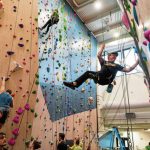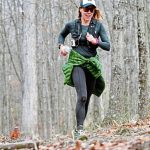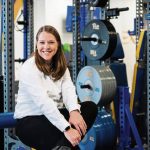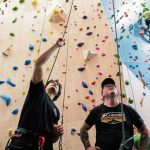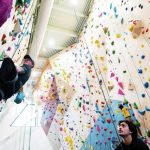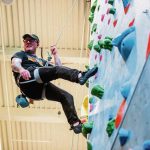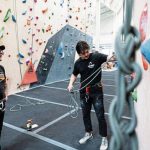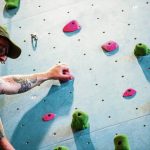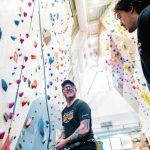A nationally ranked triathlete and mother of five, 54-year-old Heather Melzer likens her participation in the sport to the adage about fine wine.
“You can get better as you get older,” the North Allegheny woman said. “My bike just keeps getting better, and, right now, it’s my only weapon against my younger competitors.”
Melzer began her fitness journey in track and cross country in high school and college. She even had a short pro contract for distance running.
After taking a break to start her family, she picked up casual training with a triathlete group while pregnant with her second son.
Her focus kicked into high gear after a friend surprised her by signing them up for the Lake Placid Ironman competition.
“Six or seven months after I had my son, I was competing in my first and only full Ironman,” Melzer said.
Growing trend
Melzer is one of a growing number of older athletes who aren’t shying away from extreme sports, which typically attract younger participants.
“We’ve seen a change,” said Tom Kamber, executive director of AARP’s Older Adults Technology Services. “We’ve seen more (older) people participating in a wider range of sports. … There’s certainly more older adults competing in extreme sports as well.
“Older people are really in a different era today. There’s a tendency for older adults to be living more active lives.”
Kamber’s program offers approximately 9,000 classes on a range of topics, with nine of the top 10 most popular classes being fitness related. In its Senior Planet Sponsored Athletes program, five senior athletes who participate in nontraditional or extreme sports share their fitness journey with other older adults. Athletes this year include a 63-year-old weightlifter, a 70-year-old sprinter and a 73-year-old cross fitness athlete. Previous years featured a skydiver, hockey player and surfer all in their 60s and 70s.
“I think there’s still a stereotype that older people are not as likely to take risks or not as likely to be active or fit … but frankly, that is often misplaced,” Kamber said. “Sometimes people are surprised, but they shouldn’t be. … The dynamic these days is simply that older people are just out here doing it, and everybody is beginning to recognize that this is the new normal.”
In the past decade, the number of people 60 and older who register for the Ironman (a 140.6-mile and 70.3-mile triathlon) has quintupled from about 2,500 participants in 2012 to nearly 13,000 in 2022, according to research from the Mather Institute. Likewise, while the average Iditarod (a multiday, multimethod race through subzero Alaskan temperatures) participant in the 1900s was in their 30s, the average participant is now 46. A 2022 AARP and National Geographic study found that 44% of people in the 80-and-older age group do resistance training — the same percentage as in the 18-to-39 age range.
In the Pittsburgh area, extreme races such as the Baker Trail Challenge and the Rachel Carson Trail Challenge have seen a steady uptick of athletes over 50 in the past eight years. Participation of athletes 50 and older in the Baker Trail Challenge — a 50-mile ultramarathon that traverses six counties, including Clarion, Armstrong, Indiana and Westmoreland — has increased by 350% since 2015. The Rachel Carson Trail Challenge — a 36-mile, one-day endurance hike — has seen just over a 6% increase since 2015.
And 300 runners older than 50 completed the 2022 Pittsburgh Marathon, a 26.2-mile race through 14 Pittsburgh neighborhoods.
Uphill climb
High above the ground-level sports, Matt Strickland, 42, found his true love in his teen years: climbing.
Although he admits to letting his body “go” while touring with metal and punk bands in his 20s, the Highland Park man came back to the sport and really stepped up his game when he was living in Quebec during the onset of the pandemic.
The only facilities open during that time were climbing areas, since it is primarily a solo sport. His trainer happened to be Olympic sport climbing coach Andrew Wilson.
Strickland’s attraction to the sport was quickly reignited with the help of a passionate coach and the free time he had while working remotely.
“It was great,” Strickland said, “It was really fun, and I met a few people while I was doing it.”
After relocating to the Pittsburgh area in August, he decided to stick with the sport and joined Ascend, a Point Breeze sports climbing gym. His goal is to increase as many climbing grades as he can.
“I read a piece about two years ago, and the writer said that he didn’t care about climbing to compete,” Strickland said. “He just cared about climbing on beautiful things. That’s how I feel about it. I want to climb on as many things as I can.”
During business hours, Strickland is a whiskey man. He works with distilleries, and teaches and writes about the liquor. He enjoys his work but likes the escape that climbing provides.
“I wanted to have something that I’m decent at outside of my day job,” Strickland said. “You’ll get guys well into their 70s still climbing, and I don’t want to stop anytime soon.”
Sports climbing in the outdoors, going head to head with the elements, provides him with a mental challenge, too.
“It’s like playing a methodical game of chess in real time,” Strickland said. “You look at the path and figure out how you are going to beat it.”
Strickland’s current trainer, Sam Franke, 22, agreed.
“Matt and I actually bonded about that,” Franke said. “I would much rather climb a mountain than a boulder in the woods. I was telling him the other day that when climbing something like a mountain, you need to think about the move that you want and think about the moves that you need to make to get to that point. If you go in blind, you won’t be successful.”
Training, recovery important
As a coach for Ascend and a trainer at Global Human Performance, Franke works with athletes of all ages. In his senior year of college, majoring in exercise science, he has been training athletes since he was in high school.
Whether he is instructing children or 60-year-olds, his mantra doesn’t change.
“Recovery is almost everything to an athlete,” Franke said. “If you don’t have the proper recovery, you won’t see those gains from the work you put in. Athletes need to eat well, sleep well and need to rest enough to get those advantages of their workout.”
Dr. Jeanne Doperak, associate professor of sports medicine in the department of orthopedics at UPMC, said she commonly sees patients over 50 exercising at all activity levels.
While treatment for sports-related injuries doesn’t vary much with age, the healing process takes longer for older athletes, she said. A way to combat that is to balance exercises to create a strong foundation for the body.
“As all athletes mature, it is important to do some sort of cardiovascular activity,” Doperak said. “So, strength training, some balance training and flexibility training. It’s important to have a strong base. If you don’t, you’re setting yourself up for an injury.”
Going the distance
Amy Nelson, 51, of Franklin Park has a renewed passion for sports — specifically, ultra running, which is any race longer than a marathon.
Most are trail races lasting for 50 or 100 miles. Some are even longer, with runners completing courses over multiple days.
“A 50-miler is probably my favorite distance,” Nelson said. “It’s pretty normal in the group that I run with. A 50-miler is not a big deal, and it just becomes normal while you’re logging miles and training.”
Nelson ran track in her youth but gave up the sport until 2010, after she had become a mother and decided to move on from her career in banking.
“I was pretty high on the ladder,” Nelson said. “I traveled internationally and did quite well. I had a team under me and was basically a workaholic.”
After deciding not to go back to work, Nelson found she needed to do something to channel her competitive energy.
“I just started running, and I channeled all of that work I was doing at BNY Mellon, all the work I do at home — I was pouring it into running,” Nelson said. “I started competing, and it was like a channel for me to survive. Otherwise, I probably would’ve gone crazy.”
Nelson began with road running and advanced to 5Ks, 5-milers, half-marathons and marathons.
“I just kept going,” Nelson said.
Nelson signed up for the Rachel Carson Trail Challenge, which led her to join the North Park Trail Runners group.
“The more I ran these trail races, it was just a natural evolution,” Nelson said. “The nature of ultra is that they’re all trail races, and everyone just keeps running longer. When you’re surrounded by people who are just running longer and longer, it seems normal to just keep getting more miles.”
Nelson doesn’t follow a specific training schedule but focuses on getting weekly mileage while prepping for her next race. She said she tries not to get wrapped up in daily miles but listens to her body and completes long runs throughout the week.
She attributes her introduction to the extreme sports world to her friend and fellow athlete, Melzer.
“Training with her triathlete group was really life-changing,” Nelson said. “She made me believe that if you can see it, you can be it.”
Perfect balance
After finishing the Lake Placid Ironman, Melzer started to “get the bug” for competing. She quickly found her sweet spots are sprint distance, Olympic distance and half Ironmans. Full Ironmans “just aren’t my thing” and full marathons are just “a little too long,” she said.
She has the most success with shorter distances and enjoys them more as well. Her times have improved as she gains age, experience and strength.
There are times when Melzer thinks of stopping and “going out on top,” but she can’t seem to part with the sport and the community she loves so much. She says she has found the perfect balance of working, having a family and competing.
“I feel like sometimes as women we have families and somewhere we lose ourselves or who we were before we got married,” Melzer said. “But this keeps me true to that person. It makes me feel younger. When I’m out there racing, I don’t feel like an old person. The old me just comes back. I’m still there.”













